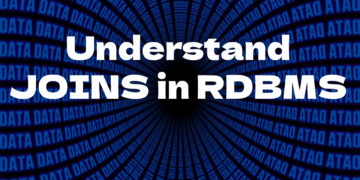In the vast landscape of database management systems, PostgreSQL has emerged as a powerful and popular choice for organizations and developers alike. Renowned for its reliability, scalability, and extensive feature set, PostgreSQL has earned a stellar reputation as a robust open-source database system. Join me as we explore the key features and benefits of PostgreSQL.
Also Check : Understanding SRS
A Foundation of Reliability
PostgreSQL is renowned for its exceptional reliability, making it a preferred choice for critical applications. It employs a multi-version concurrency control (MVCC) approach, allowing multiple transactions to access the same data concurrently without conflicts. Additionally, PostgreSQL offers advanced crash recovery mechanisms, ensuring data integrity and minimizing downtime in the event of system failures.
Flexible Data Modeling
One of PostgreSQL’s greatest strengths lies in its flexible data modeling capabilities. It supports a wide range of data types, including built-in and user-defined types, enabling developers to model and store complex data structures effectively. PostgreSQL also supports advanced indexing techniques, such as B-tree, hash, and generalized search trees, which enhance query performance for large datasets.
Robust Features
PostgreSQL boasts an extensive set of features that cater to diverse data management needs. Some notable features include:
ACID Compliance PostgreSQL adheres to ACID (Atomicity, Consistency, Isolation, Durability) principles, ensuring data integrity and transactional consistency.
Extensibility: With support for user-defined functions, custom data types, and procedural languages like PL/pgSQL and PL/Python, PostgreSQL offers developers a high degree of extensibility.
Advanced Querying: PostgreSQL supports complex SQL queries, including subqueries, common table expressions (CTEs), window functions, and full-text search capabilities.
Replication and High Availability: Built-in replication features allow for data replication across multiple servers, ensuring high availability and fault tolerance.
Scalability: PostgreSQL can scale to handle large datasets and high traffic volumes by leveraging features like table partitioning, parallel query execution, and connection pooling.
Active Community and Ecosystem
PostgreSQL benefits from a vibrant and active open-source community. This community-driven approach ensures continuous development, frequent updates, and a wealth of community-contributed extensions and plugins. PostgreSQL also enjoys robust community support through mailing lists, forums, and online resources, making it easy for users to seek assistance and share knowledge.
Enterprise Adoption and Success Stories
PostgreSQL has gained significant traction among enterprises across various industries. It powers critical applications for companies like Apple, Fujitsu, Cisco, and many others. Its scalability, reliability, and cost-effectiveness have made it a popular choice for organizations seeking a robust and open-source database solution.
PostgreSQL stands as a testament to the power of open-source database systems. With its reliability, flexibility, and extensive feature set, it has become a go-to choice for developers and organizations worldwide. Whether you’re building a small-scale application or managing vast amounts of data, PostgreSQL offers the scalability and stability required to meet modern data management challenges. As a truly open-source project supported by a vibrant community, PostgreSQL continues to evolve, making it a compelling option for those seeking a robust and future-proof database management system.




























Comments 1